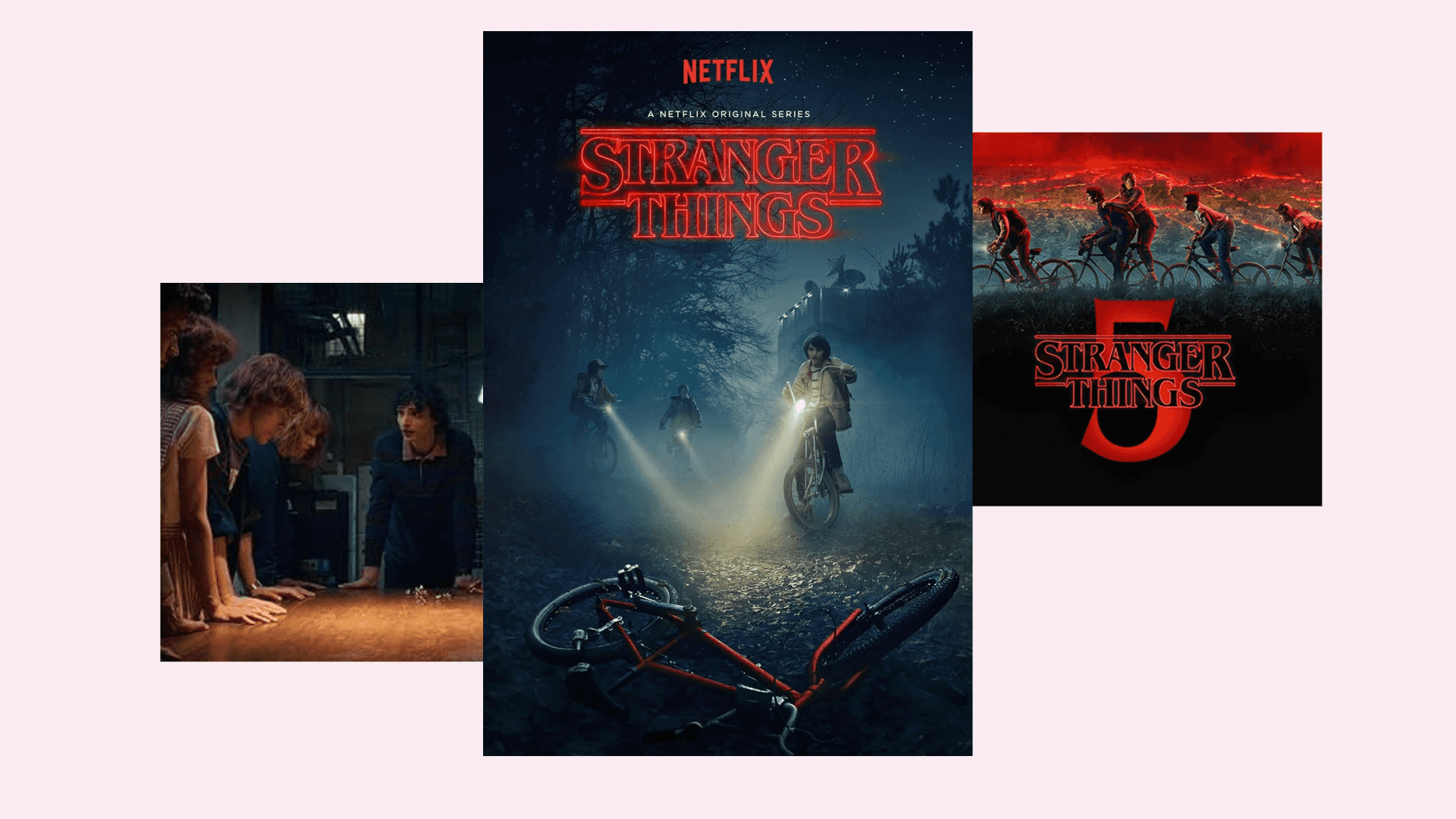
the helpful content update
Written by Polly
In August Google announced the Helpful Content Update and SEOs everywhere began the fun task of figuring out what this means for them. Polly sat down with Senior Content Lead, Sophie, and Senior Technical Lead, Daniel, to understand how this is going to affect the SEO world.
WHAT DOES IT MEAN
Sophie: So from a content viewpoint, I think one of the first things people think about it is their clients and how the update will impact them. People are thinking “oh, no, what if our clients are talking about something off-topic – is that going to be penalised? Is Google looking at it and going, oh, actually, this isn’t relevant to the user?” But I think we were finding that probably won’t be the case.
Polly: Yeah, I think at least over the last five to ten years or so, Google has massively been working towards that, like, related entity sort of thing. So if a jewellery brand is talking about, like, local food places, nearest location, or celebrities that are into fashion and jewellery sort of thing, I think it’s getting a lot better in trying to I guess reward people for talking about those linked entities and trying to show the connections between different topics, rather than just you’re a jewellery brand, you need to write about rings and gold chains sort of thing.
Sophie: Yeah. As a concept it’s music to a content writer’s ears, to know that you can still write about fun topics that are kind of roughly related, without feeling like in the back of your head, you’re not meeting user intent. I suppose that is user intent, isn’t it? You know that you’re landing on a site that’s giving you almost additional entertainment and additional information. That’s probably a good thing, rather than anything else.
Polly: Yeah. Good point. I think the update is more to stop people just writing about things that are just completely, wildly off-topic, and have no relation. That’s the premise behind it, isn’t it?
Daniel: Yeah, I think there’s a fine line between it. I think as long as it’s still giving value. So an example you said earlier, one of our clients that is a fashion brand writes a lot of blogs about food recipes, drink recipes, days out in Yorkshire, stuff like that. And even though that is quite massively off-topic, it is still essentially providing value to the reader. As long as the content is quality content that’s written with the end goal of giving value to the reader, and giving them content that they’ll be able to take away and do something useful with, or that they’ll be able to learn something new from, even if it isn’t like Sophie said strictly on topic. I think that’s what Google is trying to get around, to clamp down on… what was the word you said earlier?
Sophie: Churnalism.
Daniel: Churnalism, yeah, just churning content out just for the sake of it, and for sort of writing for keywords that aren’t at all relevant to that site. And again, not writing it in a quality way, with the end user in mind, it’s just trying to churn it out, and cramming keywords. And I think that’s most likely what Google’s trying to get rid of.
Polly: I mean, any business that is already just literally writing about anything to get somebody to their site isn’t doing a great job to start with because it’s great getting traffic to your site, but you want the right traffic.
Sophie: I think the SEO industry sees an update and goes, oh, my God, we’re going to get penalised, our clients are going to lose ranking, the world is going to burn, and people are hyper-aware of the potential damage an algorithm update can do. Twitter is full of SEOs freaking out, and creating content templates and audits – everyone’s on high alert…but I don’t think it’s aimed at us. I don’t think this content update is aimed at people who are trying their best, it’s aimed at big, big, high-ranking publications that are owned by corporations, who are pushing fake news out through social media, who are making incorrect information go viral. There’s an example I saw earlier, talking about release dates for the new “Game of Thrones” prequel. “The House of the Dragon,” you know how it goes, “Release date here, cast, crew, all the information you need to know.” The release date, at the point at which this article was published, hadn’t been released. It was a completely false clickbait piece. But we’re talking about multi million-pound corporation sites that have so many content pieces being published, thousands of pieces of content are probably published a day, with so many writers behind them, publishing any old crap that they think will get their site ranking. I think Google is trying to slap that down and kind of make room for us [SEO specialists], rather than it being aimed at us. But I think it’s quite easy to take it personally.
Polly: Definitely. I guess the worst are those recipe sites, where you have to scroll through so much irrelevant information to get to the bit you just want to see: the ingredients that I want to add to my shopping list. And I’ve heard it’s stuff like that, isn’t it, that’s just going to be massively penalised for having so much irrelevant content at the beginning just to keep users on a page, and the bit that people want being so far down?
Sophie: Yeah. And I think with content that we work on, that’s already best practice, put all your information in the top line, and then if you want to kind of waffle on, probably do that somewhere else. Do that where users don’t have to see it. It’s preventing a strong user experience.
Polly: You mentioned yesterday, Sophie, about how it’s massively focused on short form, over long form. How do you see that playing out?
Sophie: It’s a weird one. Having researched it a bit further, the kind of terminology that experts are using, generally speaking, suggests best practice is to create comprehensive, concise content. I suppose you can interpret that either way. If the best way to concisely demonstrate something is in a 5,000-word piece, crack on. I mean it’s highly unlikely that would be the case, unless you’ve got so many different angles to go at, and it’s an educational piece. Whereas you can concisely explain something like a recipe in a few lines. I think it’s that, more than anything. But for us, it’s being aware of getting down everything you want to say, in as few words as you can. The SEO and the content industry have got very used to going, “how can I expand this? How can I add another FAQ section, another irrelevant bit of content, how can I make it a bit longer to meet that word count?” I think we should be going the other way. Ask yourself “what’s the smallest amount of words that I can use to provide all of the information when I would have otherwise prattled on about it for 3,000-words.”
Polly: It’ll call out a lot of people who actually can’t write very well because that’s the hardest thing to do, to write less.
Sophie: Yeah. Completely. There’s the temptation, isn’t there, every time you write something, to go “I’ll just add this bit in, I’ll just add that bit in.” But either you do an ultimate guide that is massive and has all sorts of little sections, or you choose to focus on all those individual sections, and create a whole wealth of content around the topic. But either way, I don’t think you’re going to be rewarded for that if it’s off your brand. You need to make sure you’re always creating content that your audience will like.
Daniel: I think that’s it. At the end of the day, it goes back to that, Google’s end goal of trying to provide the best results and information as fast as possible to the end user. And as Sophie said, I think over the last few years, there has been this…I guess craze around long-form content, and the impact that it will have on rankings, and that has got to the point where people are just writing more content for the sake of adding content to the page, and Google is picking up on that. And again, it’s, as you’ve said, Polly, people are whacking an extra 1,000 words of content at the top of a document just for the sake of making it more long-form. But if that’s not providing value to the user, if it’s making them scroll through the page, scroll past display ads and so on throughout the page to get to the content they’re after, then it’s not doing what Google wants you to do.
Sophie: Something that I thought was interesting when we were chatting earlier, is the impact of the brand, and how important the brand tone of voice is. As an SEO and content person, we’re looking at keywords and looking at user intent and that kind of thing from a very SEO angle. And if you look a brand such as the fashion brand you were mentioning earlier, Daniel, they know that their customers are fun-loving, want to throw a party, have food, drink, sunshine, look good, feel good, all the rest of it. And if that suits their brand, to then write a fairly irreverent piece on food and drink and cocktails, if it suits their brand, and it suits their brand values, it suits their audience, I think Google will…it’s AI, ultimately, it’s machine learning that’s filtering this out, it’s not an actual human being scrolling through millions of sites. And AI will look at the brand overall, and the way that you talk, the products that you’re selling, and kind of put two and two together, and go, yeah, do you know what that’s fine… I think it’s more important than ever for brands to know what their brand is, what their brand stands for, and what their brand can and can’t talk about.
And that would be huge, for the SEO and content experts, getting in front of these brands, and going who are you, and what do you want to talk about? How do you speak? That will be huge.
Polly: I’m sure we’ve all seen other people in the industry who kind of ignore that bit and just go straight for “this is trending, let’s talk about this, this is what everybody’s looking at at the moment, what’s our spin on it?” And it doesn’t have any relevance to them or their core audience.
Sophie: We’ve seen brands post and consistently get top ranking for all sorts of terms, because said brand as a whole is such an authoritative brand, and such a voice of expertise in itself as an entity. It does well because Google recognises the power behind it, and will drive that content in front of users. I think a lot of the time, content people see it and they go, oh, we need E-A-T (Expertise, Authoritativeness, and Trustworthiness) content, can I borrow someone from finance to just pop in and give me a quote, or can you just get a behind-the-scenes expert to give me, like, a quick five minutes of your time, and regurgitate content. There’s no point. If you’ve got a brand that’s already got that expertise, you don’t need to scrabble to attribute that content to one person. The thing I think content writers need to be aware of is a quick top tip or a quick quote won’t have much of an impact. I think the content you need can only be created if you can get an actual expert to give you valuable time. We’ve done this before, like we were saying earlier, with a bunch of long-form pieces, and sat in front of the clients for a good hour, and had a proper chat with them. And they’ve been generous and valuable with their time, and have given us the information that we need to position their brand as experts.
We have an almost warped view that it’s kind of, oh, I’ll pick your brains, pop it on the website, and Google will go, oh, they’re an expert, 10 points. But it’s a brand-building exercise…
Polly: If you ignore that, the longer it’s going to take you to get to that position and be seen as an expert. If you just keep putting out crappy little bits here and there, you’re not going to reach a position of authority. Whereas if you do create a few genuine, expert thought-led pieces, that’s going to get you there.
Sophie: Another thing I thought was interesting, that we were chatting about, is the content strategy keyword side of things, and how that will be impacted. I’ll let you go, Daniel, you know more than I do.
Daniel: I think it’s, again, about finding that balance. Keywords will always play a key role in SEO, but it is about finding that balance with the brand. And for example, a lot of people would have a list of keywords that they want to target, and we’d use that as a basis for writing the content when that isn’t necessarily what’s going to drive higher KPIs that could grow the site, grow the business, get more user sessions for the site. But if it’s not on pages that are giving value to the brand, or the website, it’s not going to be the right thing for the brand again. So, it is massively about finding that balance between growth opportunities from a keyword perspective, making sure that we are constantly researching new terms, and seeing what opportunities are out there, but also working with the client to figure out what their priorities are, and what products or services might be driving higher returns for them. And then again, finding the balance between that target, and the things that work for the client, and finding all those opportunities as well.
Sophie: I think that’s interesting because when you talk about editorial content almost exclusively, you talk about things like this, but when you’re mentioning product or services pages writers really should be considering product reviews and how to make the content on site the best it can be. You don’t just have to be working on editorial content. Some of the most successful content we’ve done has been for product pages, and making sure that people know exactly what you’re selling, and why you should be the brand to buy from, and pointing to information that helps the customer’s actual product decision. And that’s huge, because all I’m seeing everywhere is product pages with minimal content. Think about what your product page is saying. Is the content on site truthful? Is it telling you that the product does something it doesn’t do? Is it shy of helpful information? Daniel was saying about reviews being kind of dupes, which I thought was really interesting.
Daniel: Yeah, so certain websites, for example one of our clients, an e-commerce site, works with reseller sites. They have a page on their website, and then say 5-10 other reseller sites also have the same products on their websites. But a lot of the time, they just use the same content as our client website, which obviously, it’s a big dupe content issue. I’m interested to see if that’s going to start becoming an issue as well and if Google starts encouraging these smaller sites to write even somewhat unique content, and again, go back to providing value to the user. Yeah, I think as well on that topic, in terms of PLPs, and PDPs for the product pages themselves, have you ever been on a website where there’s a huge chunk of text at the top, particularly on mobile, and you have to scroll down to get to the products? And then even before all the products, all these filters are quite confusing, and there might even be, like, a pop-up advert or something, or even with full screens, interstitials, that tries to get you to sign up for their newsletter or something?
Polly: Yeah.
Daniel: I think all of these things are gradually coming more into focus with Google. And again, obviously, from an SEO point of view, we can read all the articles and the announcements around this helpful content update, but we’re not necessarily going to know exactly what happens until we see the impact of it. And it’s going to be interesting to see how far Google goes with this, and if it is going to start penalising things like that more, where if there are products or add-to-basket CTAs massively below the fold now, because it’s been pushed down in that content, or filters, or whatever things that are preventing value being provided to the user, are those sites going to be penalised for it?
Sophie: What about the likes of Bing, and DuckDuckGo and all that kind of thing… will we start to see crappy content ranking in the other search engines, do you think? Is this update Google-specific?
Daniel: I guess we’ll see, yeah. But I think, obviously from my point of view, the goal of all search engines is to provide value to the end user, and again, make sure that their users are getting the results they want, the most accurate results, as quickly as possible, and at the end of the day, being able to find the right content they’re searching for.
I think it would be the same with Bing and DuckDuckGo.
Sophie: Do they have the functionality, the AI and the machine learning? Google is trying to position themselves as kind of the home for quality, but where does that leave the other search engines? I’m just wondering if you could type in a term, and see the difference in the search engines, and see who’s ranking top in Google, then see who’s ranking in another search engine, and analyse the difference? Do you reckon that’ll be a thing?
Daniel: Yeah. Definitely. I mean, we did…I can’t remember if we ever published the article about it, but probably, like, two years ago, we did a test where we each used a different search engine for a week. I had Yandex, which was the Russian search engine, which had wildly different results from Google. But that was interesting to see. And some search engines use other search engines to drive their results. So, I think Bing is the one that’s closest to Google’s algorithm and does make the most advances. There was something I saw the other week on Bing, that they did it before Google had…I can’t remember what it was, off the top of my head. But even like a few years ago, Bing was like, two or three years behind Google in terms of that technology, but the fact that it actually beat Google to something… I’ve never seen that before, and I think they are definitely making advances.
Daniel: Google’s been working towards this for the last 15, 20 years, obviously, with the Panda update, and the evolution of that over the last 10 years. As Sophie said at the start, a lot of people, especially on Twitter, SEOs are massively…I wouldn’t say overreacting, but reacting without actually seeing what’s happened yet. And I guess at the end of the day, as long as you are confident that you’re writing content for the end user, that’s going to provide value to the end user, whilst being slightly optimised with keywords in mind, I don’t think you’re going to be punished.
Sophie: Just keep an eye on your own site’s data. Everybody’s super concerned with this update, posting their thoughts on Twitter, kind of freaking out, and… just monitor your site data and act accordingly. That’s what we’re doing day in, day out. We’re looking at our client’s sites, monitoring where their content is growing, not growing, and why. Just focus on the data you’ve got, rather than trying to think too much about competitor data and where you sit on the landscape. I think that the most valuable advice that I’ve read online is to just keep an eye on you.
Polly: Yeah, you can get caught up in looking at what everybody else is doing all the time, can’t you? It’s quite easy to suddenly focus on that, and forget to look at what you do yourself.
Sophie: I see people deleting half their content and going, ‘oh, this isn’t written by an expert, bye-bye’. Have you looked at your data set? Have you looked at whether or not it’s going to be impacted? The content update might have actually done that piece’s performance the world of good, and they’re just not waiting a week.
Daniel: Imagine if it was a top-ranking page…
Polly: They’re just like, whoosh… I bet it’s happened so much more than it should.
Daniel: But I think, to be fair, there’s been times where we’ve been with clients, and there’s been, like, a really old piece on the site that might have, like, one line of information wrong, and their first reaction is, this can’t be on the site, we need to take it off. Even if it’s, like, a five-year-old piece. And again, if that piece is ranking, if it’s doing well, you should spend that time to optimise it, and spend that time to bring it back into 2022. Make it relevant, rather than just getting rid of it all, or redirecting it.
Polly: If you’ve put all the time into it to start with, what’s the point in just saying, oh, I’ll get rid of that? If you just spent maybe an hour on it, as opposed to writing something brand new that’ll take you two days…
Daniel: 100%.
Sophie: I think people have a weird thing about old content – I certainly did a few years ago – I was absolutely in this camp of, well, if I’ve got 5 to 50 blog pages all showing, like…do you know when you see it, the bottom of the blog where it’s like, 1, 2, 3, 4, and it goes up to, like…?
Daniel: Yeah.
Sophie: And you’re looking at it and thinking “what’s the point in all these pages”? No one’s rifling through these pages, and finding these years-old blogs but then when you look at how Google reads your content you start to view it differently. I’m sure I read somewhere that if you’ve got more than 300 blogs on your site, you kind of automatically start doing better because you’ve published so much content. Google does recognize that. Not if it’s crap content, obviously, but even the fact that such a wealth of content is there at all is a good thing. I didn’t realise until very recently that sheer quantity does work in your favour.
Polly: Well, I’d say it doesn’t matter how old your content is, because if you think of some of the blogs on our site that do the best they’re some of our oldest blogs.
Daniel: Yeah.
Polly: So it doesn’t matter, does it?
Sophie: That’s the thing, there’s wisdom in age.
Polly: Yeah. Just maturing nicely.
Sophie: Well, they do. Like some of the blogs that we’re writing this year, in five years will be doing better than brand new blogs, it’s just one of those things.
Daniel: If you look at consistent content freshness as well, and again going back to the value thing, just making sure that you are regularly providing valuable content, as well as tracking the impact of older content.
Sophie: Yeah, the more you post, the better you do from what we’ve seen. And then not only that, but the posts that you published five years ago will start to perform better the more blogs you post now. If you’re posting 10 pieces this month, chances are your pieces from a few years ago are going up too as you’re posting more and more as a whole.
Polly: That’s the case across literally any platform outside your website as well. If you think of social media, the number one rule is consistency for growth. And then everybody forgets, oh, wait, that applies to everything.
Daniel: I mean, if you’re doing that for starters, and then obviously on top of that doing the next steps, seeing how we can improve internally through optimisation then that sort of content freshness and value is just the starting point, and then there’s so much more that you can do to make sure that Google better understands your content, ultimately providing more value to you.
As we learn more, we’ll be sure to share on LinkedIn and follow up blogs.





